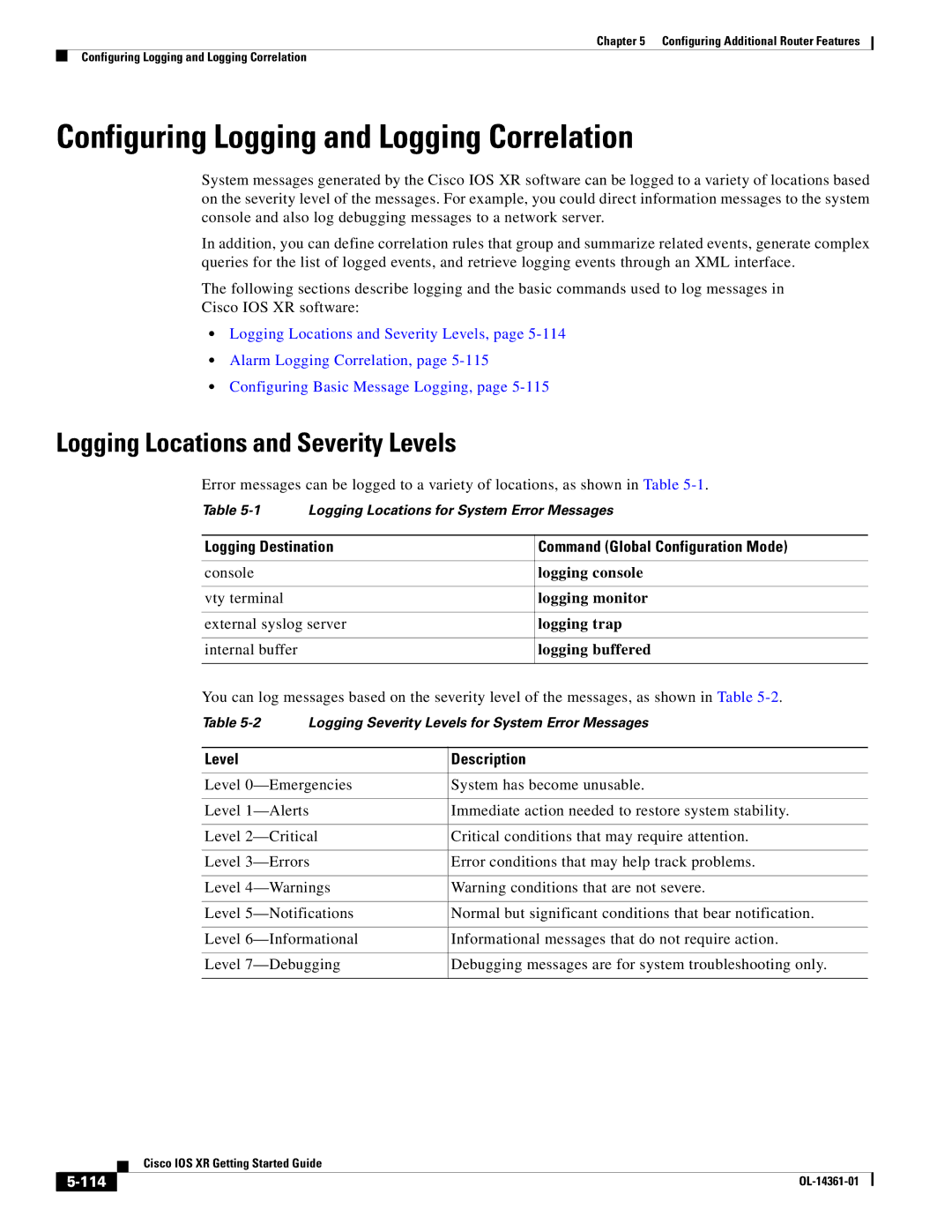
Chapter 5 Configuring Additional Router Features
Configuring Logging and Logging Correlation
Configuring Logging and Logging Correlation
System messages generated by the Cisco IOS XR software can be logged to a variety of locations based on the severity level of the messages. For example, you could direct information messages to the system console and also log debugging messages to a network server.
In addition, you can define correlation rules that group and summarize related events, generate complex queries for the list of logged events, and retrieve logging events through an XML interface.
The following sections describe logging and the basic commands used to log messages in
Cisco IOS XR software:
•Logging Locations and Severity Levels, page
•Alarm Logging Correlation, page
•Configuring Basic Message Logging, page
Logging Locations and Severity Levels
Error messages can be logged to a variety of locations, as shown in Table
Table | Logging Locations for System Error Messages | |
|
| |
Logging Destination | Command (Global Configuration Mode) | |
|
|
|
console |
| logging console |
|
|
|
vty terminal |
| logging monitor |
|
| |
external syslog server | logging trap | |
|
|
|
internal buffer |
| logging buffered |
|
|
|
You can log messages based on the severity level of the messages, as shown in Table
Table | Logging Severity Levels for System Error Messages | |
|
|
|
Level |
| Description |
|
| |
Level | System has become unusable. | |
|
| |
Level | Immediate action needed to restore system stability. | |
|
| |
Level | Critical conditions that may require attention. | |
|
| |
Level | Error conditions that may help track problems. | |
|
| |
Level | Warning conditions that are not severe. | |
|
| |
Level | Normal but significant conditions that bear notification. | |
|
| |
Level | Informational messages that do not require action. | |
|
| |
Level | Debugging messages are for system troubleshooting only. | |
|
|
|
| Cisco IOS XR Getting Started Guide |
|
